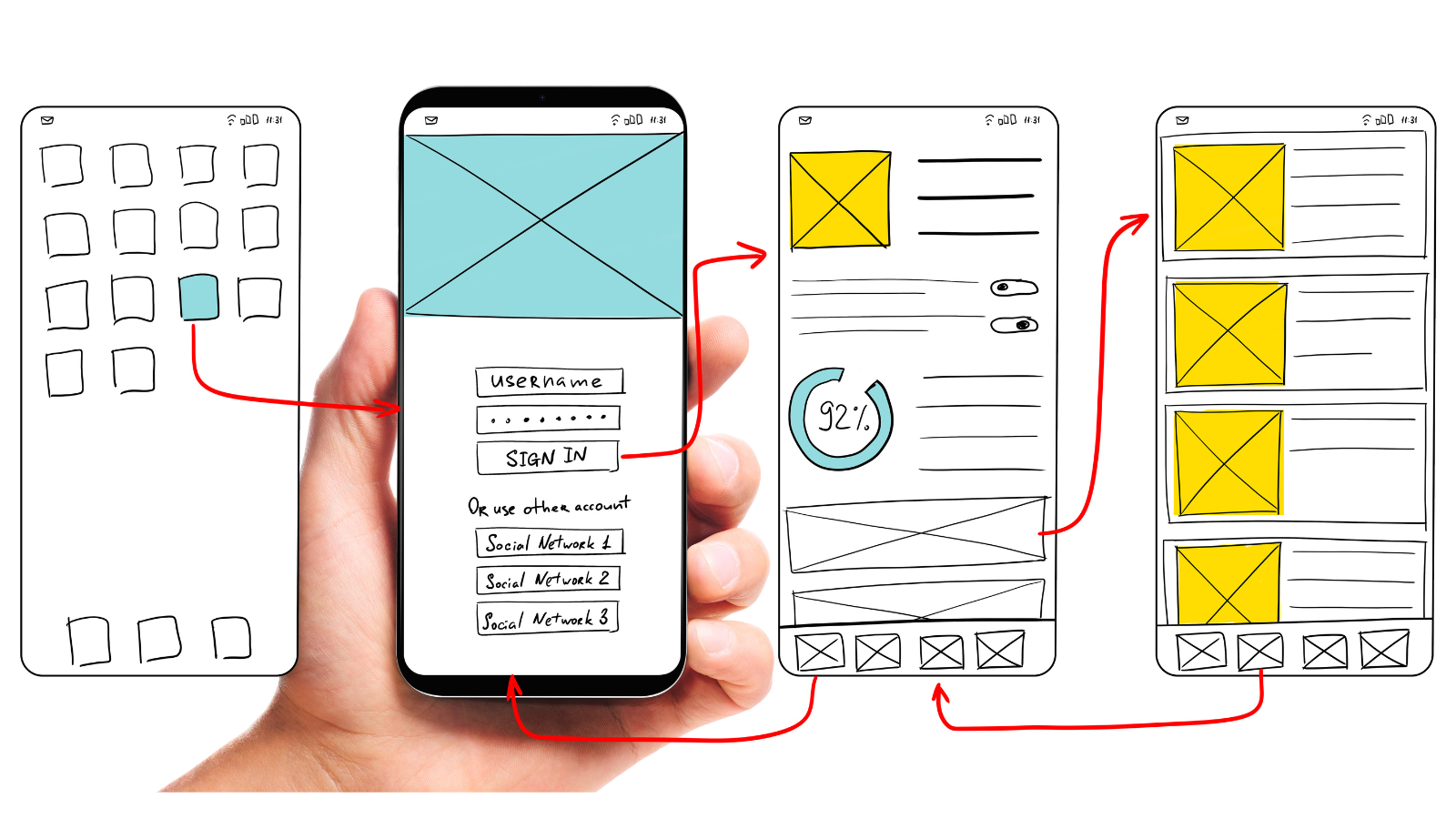If you’re like most business owners, you strive to be on the cutting edge of technology. You want your website to be as user-friendly as possible, and you’re always looking for new ways to reach your customers. Converting your website into a mobile app is the latest trend in web development, and it’s sure to impress your customers.
The Benefits of Converting Your Website to an App
There are many benefits to converting your website into a mobile app. Here are just a few of them:
Accessibility
Converting your site to an app will make your content more accessible to your customers. People are constantly on the go, and they don’t always have time to sit down at a computer and surf the web. With a mobile app, they can access your site from their phone or tablet, and they can do it while they’re on the bus, lounging on the sofa, or even at a restaurant while waiting for their food.
User Experience
A mobile app provides a much better user experience than a website. An app is designed specifically for use on a mobile device, so it takes advantage of all the features that a phone or tablet offers. On the other hand, a website is designed for use on a desktop computer and doesn’t always translate well to a smaller screen.
An app is also more interactive than a website. With an app, you can include features such as push notifications, which send updates and information directly to your customers’ phones. You can also have GPS capabilities, so your customers can quickly find your store or office no matter where they are.
Brand Awareness
Another benefit of having a mobile app is that it will help you build brand awareness. With so many businesses competing for attention online, it’s essential to find ways to stand out from the crowd.
A mobile app is a great way to do this because it allows you to have a presence on your customers’ home screens. They’ll see your app every time they look at their phone and be reminded of your business whenever they use it.
More Loyalty and Engagement
A mobile app can also help you build more loyalty and engagement with your customers. People are more likely to use an app they’ve downloaded than visiting a website. And, if they’re using your app, it means they’re interested in what you have to offer.
The app is an exceptional opportunity to engage with your customer base and build relationships. You can send push notifications to announce new products or sales, and you can use the app to collect customer data that you can use to improve your business.
A Presence in the App Stores
When you convert your website to a mobile app, you’re also getting a presence in the app stores. Making yourself visible in the app store can help you reach new customers who might not have found your site otherwise.
People use the app store to find new apps to use, and if your app is listed there, it’s more likely to be seen by potential customers.
Potential for Greater Revenue with a Mobile App
You can also offer in-app purchases, which can be a great way to generate revenue.
In-app purchases are becoming increasingly popular as people are more likely to make impulse buys on their phones. This is a great opportunity to increase your sales and boost your bottom line.
The Competition
Converting your website into a mobile app will give you an edge over your competition. If your competitors don’t have a mobile app, they’re already at a disadvantage. By offering a mobile app, you’ll be able to provide your customers with a better user experience, and you’ll stay ahead of the curve.
How Do People Use Mobile Apps Differently Than Websites?
Different people use mobile apps differently than websites.
Some use them more for entertainment, while others use them for work or to stay connected with friends and family.
There are a few key ways that people use mobile apps differently:
1. They’re more likely to make impulse purchases on an app.
2. They’re more likely to use an app they’ve downloaded than to visit a website.
3. They’re more likely to use an app for entertainment than for work.
4. They’re more likely to use an app to stay connected with friends and family.
5. They’re more likely to use an app to find local businesses.
6. They’re more likely to use an app to book travel.
7. They’re more likely to use an app for banking and payments.
8. They’re more likely to use an app for health and fitness.
9. They’re more likely to use an app for news and current events.
10. They’re more likely to use an app for gaming.
While there are some key habits in how people use mobile apps differently than websites, the truth is that people use them for a variety of reasons. It’s important to cater to your audience and offer an app that meets their needs.
A Few Stats
Statistically, there are also a plethora of reasons to join the app-creation game to level up your business by converting your website to an app.
According to Shakuro.com’s 2019 statistics, 80% of internet surfers used a mobile device to search.
Furher more, 90% of mobile media time is 90%, with the remaining 10% on websites.
When it comes to transactions online, 40% of purchases are conducted on mobile devices.
And to top off all that juicy information, smart phone usage for average smartphone users is in excess of four hours per day.
Questions to Ask Before You Build
There are three main questions to ask yourself before converting your website into an app.
First, what type of app do you envision? How should it look?
Next, determine how quickly you want your app released and available to users.
Finally, determine your budget.
Native Apps vs. Hybrid Apps
When you want to convert your website to an app, the main decision you’ll need to make is whether to create a native app or a hybrid app.
A native app is an app that is built specifically for a particular operating system, such as iOS or Android.
A hybrid app, on the other hand, is an app that combines elements of both native and web-based apps.
The main advantage of a native app is that it can take full advantage of all the features of the operating system. This means that it can provide a better user experience, since it can access things like the device’s camera and GPS.
The downside of a native app is that it can be more expensive and time-consuming to develop.
A hybrid app, on the other hand, is usually less expensive and quicker to develop, since it doesn’t need to be built specifically for each operating system.
However, the trade-off is that a hybrid app may not be able to take full advantage of all the features of the device. Ultimately, the decision of which type of app to create will come down to your specific needs and budget.
Make a List of Features Your App Must Have
The first step in converting your website to an app is to make a list of all the features your app must have.
Some things to consider include:
Push notifications: Do you want to be able to send push notifications to your users? This can be a great way to keep them up-to-date on new products, sales, or events.
In-app purchases: Do you want to offer in-app purchases? This is a great way to generate additional revenue.
Development costs: How much are you willing to spend on developing your app?
Creating a prototype of your app can help you determine which features are essential and which ones you can live without. This will also give you a better idea of the development costs.
Tips for Designing Your Mobile App
Once you’ve decided which features your app must have, it’s time to start designing it. Here are a few tips to keep in mind:
Keep it simple: The best mobile apps are those that are easy to use and understand. When designing your app, make sure that the user interface is clean and uncluttered.
Use high-quality images: Images are an important part of the user experience. Make sure to use high-quality images that are relevant to your content.
Use whitespace: Whitespace can help break up content and make it easier to read. When designing your app, make sure to use plenty of whitespace.
Use typography: Typography is an important part of design. When choosing a font, make sure it’s easy to read and that it complements the overall look of your app.
Keep the user in mind: Always keep the user in mind when designing your app. Make sure that the app is easy to use and that it provides value to the user.
Test, test, test: Before launch, make sure to test your app thoroughly. This will help ensure that there are no bugs or errors.
Following these tips will help you create a well-designed app that is easy to use and provides a great user experience.
Can You Build Your App Yourself?
If you’re comfortable with coding, you may be able to build your app yourself. However, if you’re not a developer, it’s probably best to hire someone to do it for you.
There are several online services that can help you convert your website to an app with minimal effort. All you need to do is provide them with your website’s URL and they’ll take care of the rest.
Many resources allow you to create an app for free and then only charge when you’re ready to publish.
Some of these services include:
Appy Pie
GoodBarber
ShoutEm
Passion
Converting your website to an app can be a great way to reach a new audience and generate additional revenue. If you’re not a developer, there are a number of online services.
These online services usually have a monthly subscription fee, but they can save you a lot of time and effort in the long run.
Hiring a Developer
If you decide to hire a developer, there are a few things you should keep in mind. Here are some things to look for:
Experience: Make sure the developer you’re considering has experience in building mobile apps. How long have they worked in this industry?
Cost: Developers usually charge by the hour, so be sure to get an estimate of how much the project will cost before you commit to anything.
Their website: Take a look at the developer’s website. Does it look professional? Do they have any case studies or testimonials from previous clients?
Ratings and Reviews: Check out the developer’s ratings and reviews. Are they generally positive?
References: Ask the developer for references from previous clients. This will give you a better idea of their work.
Communication: It’s important that you communicate your vision for the app clearly to the developer. Otherwise, you may end up with an app that doesn’t meet your expectations.
Customer service: Does the developer have good customer service? If they’re not responsive to your questions or requests, it’s probably best to look elsewhere.
How Much Does a Developer Cost?
The cost of hiring a developer can vary depending on their experience and location. In general, developers in the United States charge between $50 and $250 per hour.
How to Monitor and Track Your App's Performance
Once your app is live in the app store, it’s important to track its performance. This will help you see how well it’s doing and make necessary changes if needed. There are a number of ways to track your app’s performance, including:
App Annie: App Annie is a free app store analytics platform that provides data on your app’s rank, downloads, and reviews.
Google Analytics: Google Analytics is a free web analytics platform that can be used to track your app’s traffic and usage.
Flurry Analytics: Flurry Analytics is a free mobile analytics platform that provides data on your app’s sessions, users, and retention.
Monitoring your app’s performance is important in order to ensure its success. By tracking your app’s data, you can make changes and improvements as needed.
Conclusion
If you’re not a developer, there are various online services that can help you convert your website to an app with minimal effort. All you need to do is provide them with your website’s URL and they’ll take care of the rest. Many resources allow you to create an app for free and then only charge when you’re ready to publish.
Converting your website to a mobile app can be a great way to reach a new audience and generate additional revenue.


